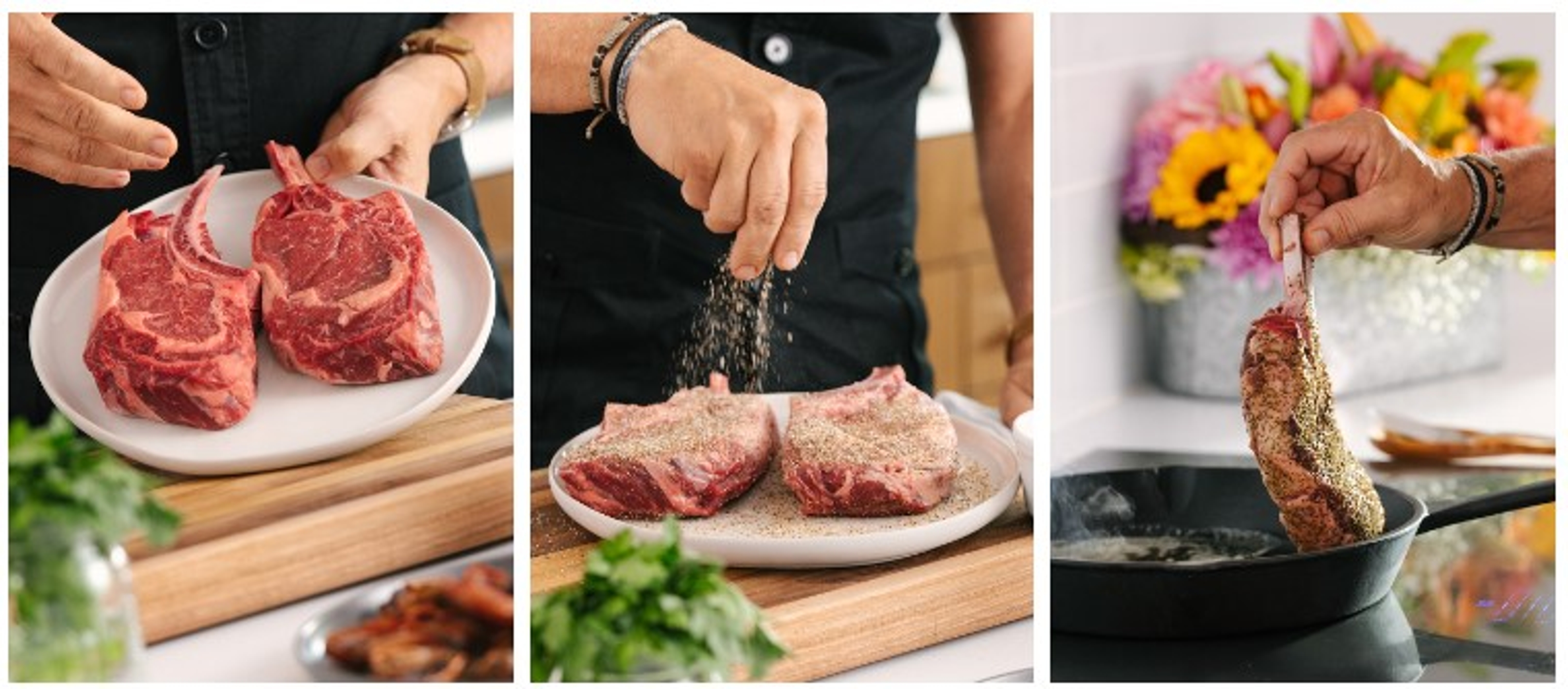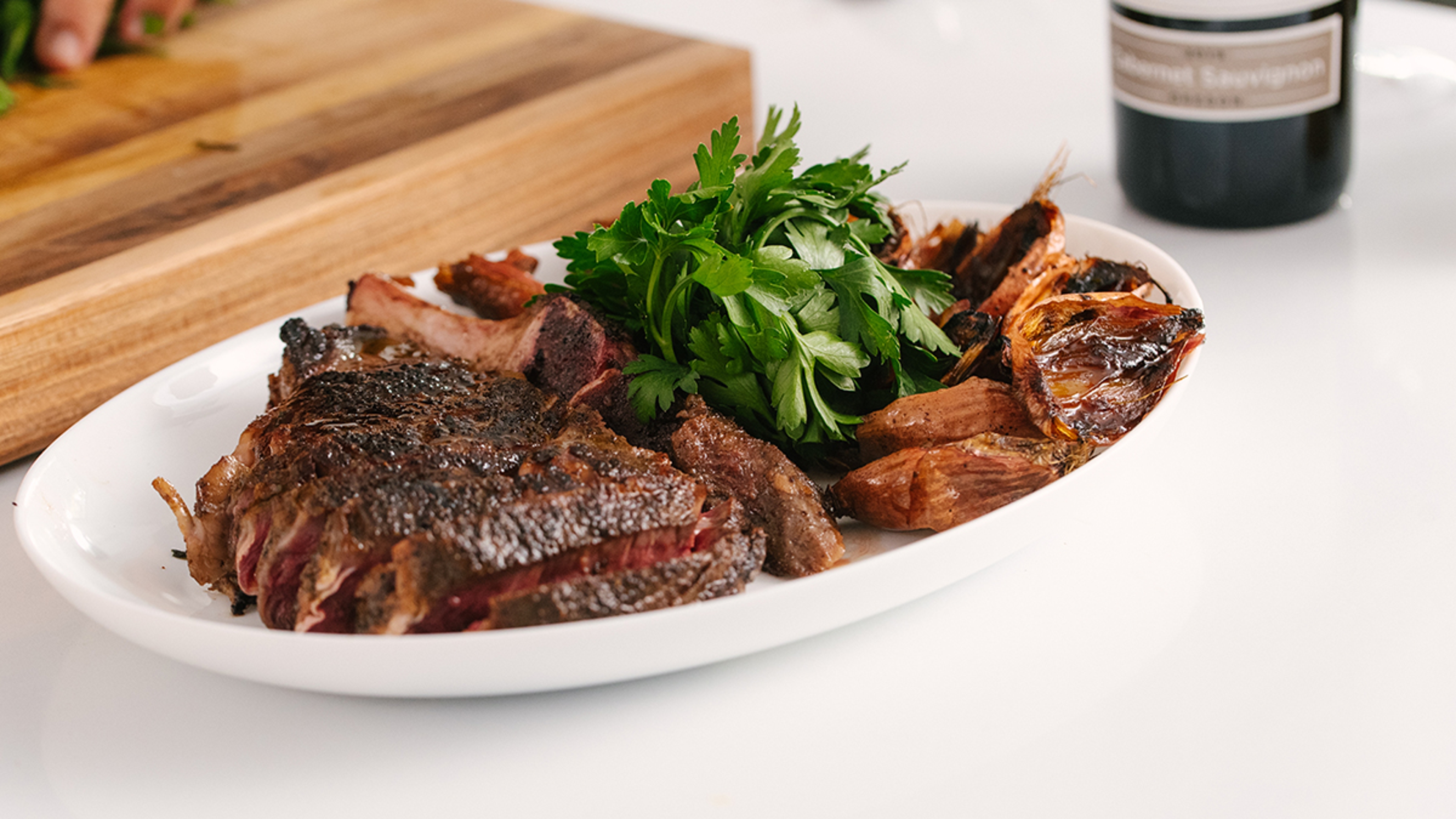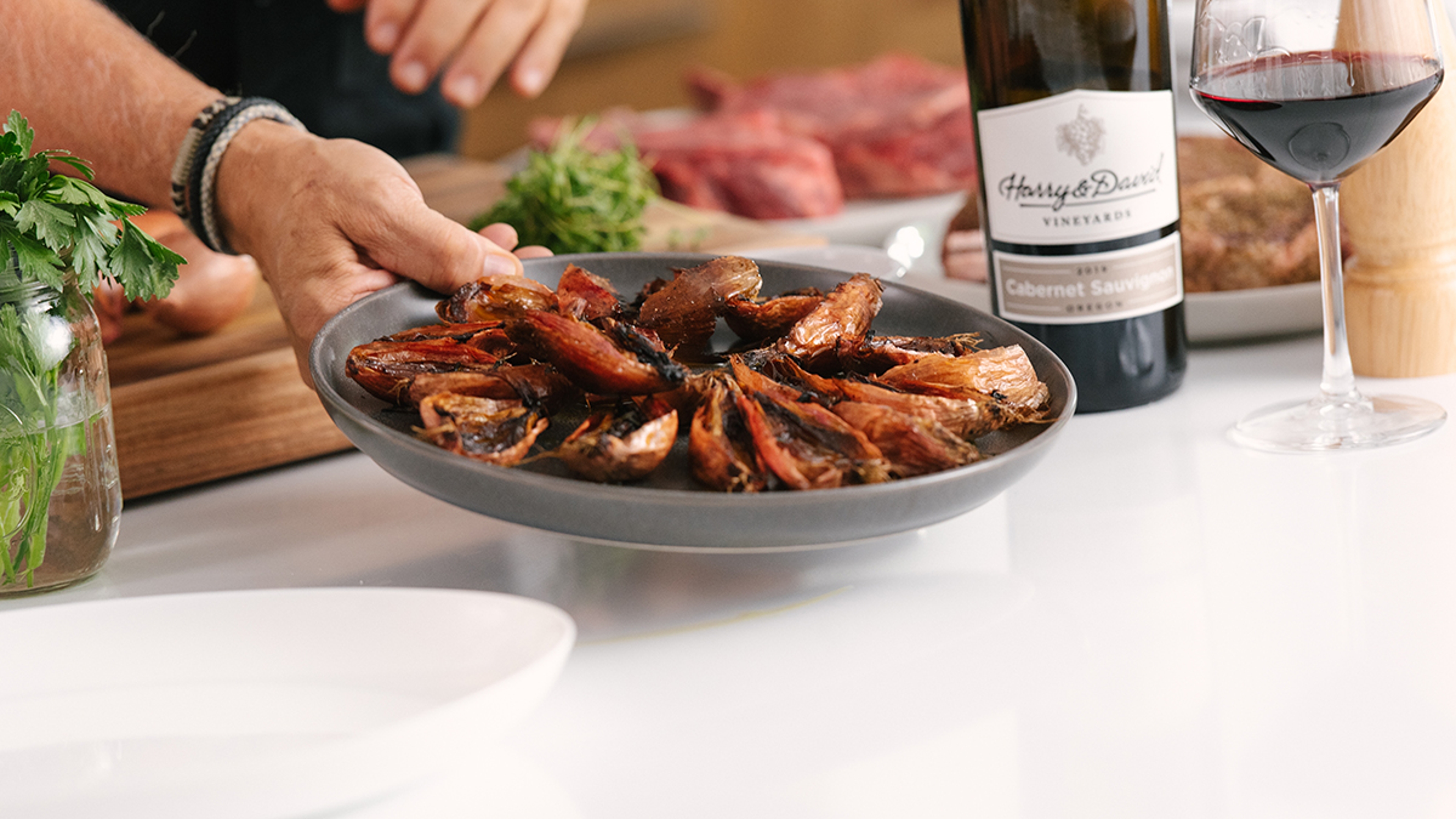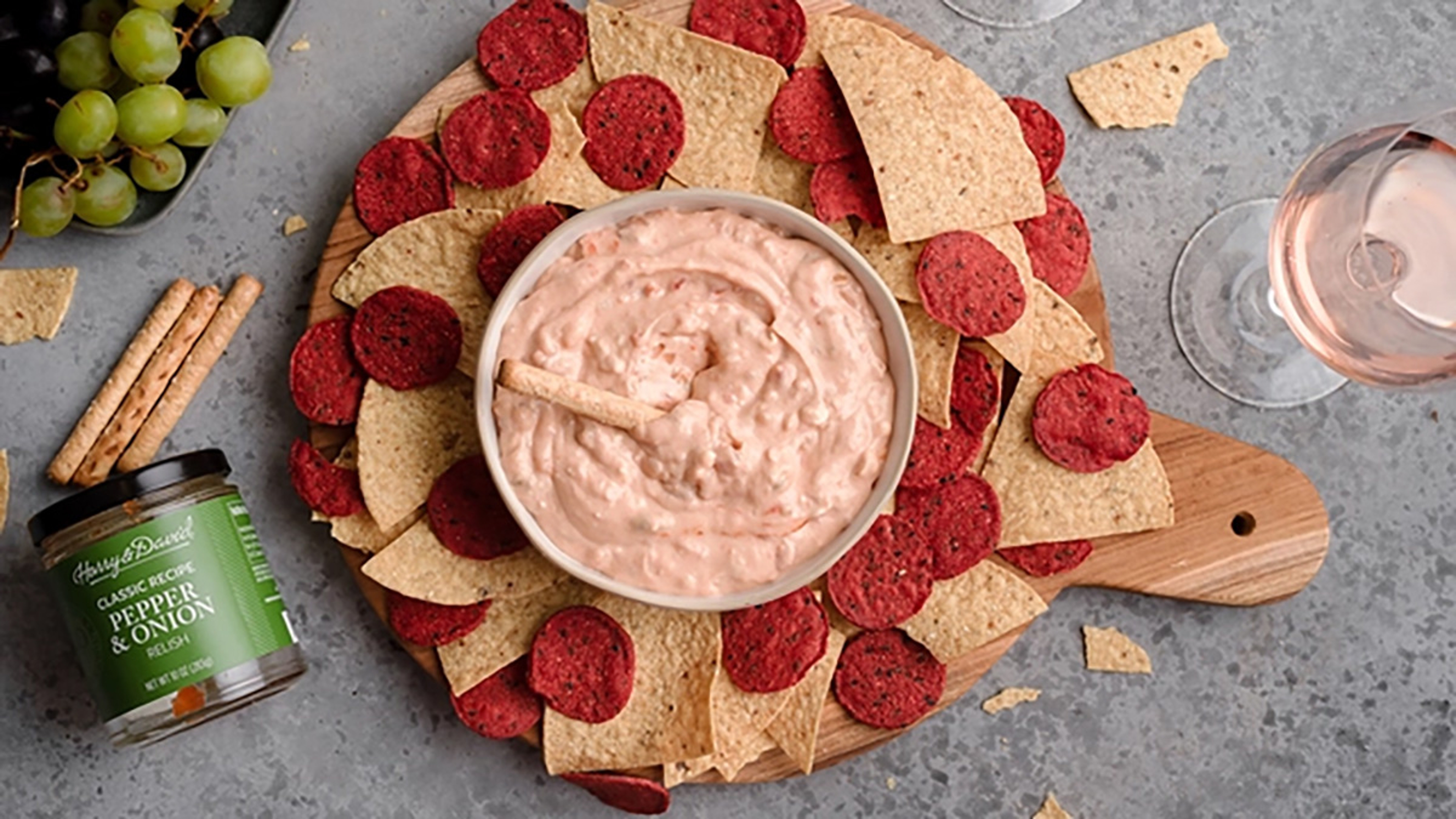Grilling With Geoffrey Zakarian
Watch the chef perfectly — and effortlessly — grill a ribeye steak indoors by cooking it in a cast iron skillet. You should try it.
May 20, 2022
Sunshine-filled summer days are great for getting your outdoor grill fired up for a feast of gorgeous steaks. But, according to chef, restaurateur, and cookbook author Geoffrey Zakarian, "Grilling is for all year round — it just depends on what method you want to use." Say hello to indoor grilling.
"Grilling," he says, "is all about the management of heat." And temperature control on an outdoor gas or charcoal grill is a lot more work than an indoor one. Enter Zakarian's indoor grill feast: Gorgeously marbled, 18-ounce bone-in ribeye steaks, seasoned simply with celery seed and a brown sugar rub cooked on the stove top and served with incredibly sweet oven-roasted shallots.
Indoor or outdoor, a terrific grilled steak begins with the best cut of beef. "You want marbling, which is all that interstitial fat," Zakarian says, "because that fat is flavor!" And, he says, "Bone-in is the best since the integrity of the steak will stay put; it holds the steak together, making it easier to cook. And it won't shrink as much." Besides, he adds, "That bone provides sensational flavor, plus the presentation is fantastic!"
The rub for the steak doubles as a seasoning for the caramelized shallots. Halved lengthwise, skin-on, and roasted, they taste "like condensed French onion soup," Zakarian says.
And just as outdoor grill grates are typically cast iron or strong aluminum, for a superior indoor grill experience, Zakarian recommends cooking the steak in a cast iron skillet since it retains heat best. When the steak meets the heat, the Maillard reaction occurs, a chemical reaction between heat, sugar, and protein that ensures a flavor-rich dark crust on your steak.

A steak dish this good needs to be paired with a complementary wine. Zakarian recommends a young, full-bodied cabernet such as Harry & David Cabernet Sauvignon to serve with his ribeye. "A young wine has a lot of tannin and acidity that you'll need to cut through the delicious part, the fat, but it's also rich!" Zakarian says.
As cabernet wine ages, its tannins — the dry, astringent characteristic from polyphenols in the seeds and stems in the grapes that give the wine its complexity — will soften. However, in a wine such as this one, the dark-cherry and cassis notes and strong tannins will work beautifully with the steak's outer char. And its crisp, tart acidity will balance the steak's rich mouthfeel with each sip.
"This dish is all about summer grilling," says Zakarian, which is to say, it's big on flavor, striking presentation, and what we love most — summer's ease.

- 1 tablespoon celery seed
- 1 tablespoon brown sugar
- 1 tablespoon cayenne pepper
- 14 teaspoon freshly ground black pepper (plus more as needed)
- 1 18-ounce Harry & David Bone-in Ribeye Steaks
- 4 tablespoons butter
- Fresh rosemary (a few sprigs)
- In a small bowl, combine the celery seed, brown sugar, cayenne pepper, and black pepper.
- Generously season both sides of the steak with the rub, reserving a few pinches to season the shallots (recipe follows). Transfer the steak to a tray, and refrigerate, uncovered, for a minimum of 6 hours and up to overnight.
- Remove the steak from the refrigerator and allow to come to room temperature 1 hour before cooking,
- Heat a large cast iron skillet over medium-high heat, add the butter and allow to melt. Once melted, stir continuously, and watch as the water content cooks off, (the butter will sputter!), and the color goes from pale to golden tan, about 3 minutes.
- Using the bone as a handle, place the steak in the pan away from you so you don't get splashed. Lower the heat to medium, add the rosemary to the pan, and allow the steak to cook undisturbed, 3-4 minutes per side, or until the internal temperature reaches 120° F. when measured with a digital meat thermometer. While the steak is cooking use a spoon to baste the steak with the rosemary-infused browned butter on both sides.
- Remove the steak from the pan and transfer to a cutting board to rest for 15 minutes.
- Use a sharp knife to slice along the bone. Then slice the remainder of the steak into ½-inch-thick slices and serve with Oven Roasted Shallots.

These shallots are so easy to make. You'll only need a sheet pan, "a generous glug of extra-virgin olive oil," some pinches of steak rub, and fresh thyme.
"You want the skin on for these shallots, as they provide a little vessel for them to cook," Zakarian says. You'll roast the shallots until very soft, bringing out all their sweetness. And Zakarian likes extra-virgin olive oil, especially for its flavor profile. "It's dense and has a lot of polyphenols, so you get this grassy flavor that I think is fantastic," he says.
While the shallots are roasting, prepare the ribeye steak (recipe above).
- extra-virgin olive oil (as needed)
- 12 large shallots (skin-on, whole )
- Harry & David® Peppercorn Steak Rub (A few pinches, see recipe below)
- fresh thyme (Several springs)
- Preheat the oven to 400° F.
- Prepare a baking sheet by first covering it with aluminum foil, then coating it with a generous “glug" of olive oil. Set aside.
- Cut the shallots lengthwise through the stem, making sure to leave the stem intact.
- Next, place the shallots skin side up on the prepared baking sheet and season with pinches of steak rub, then scatter the thyme on top.
- Place the pan in the oven, and roast until very soft, about 35 minutes. Serve with the steak.
.svg?q=70&width=384&auto=webp)







